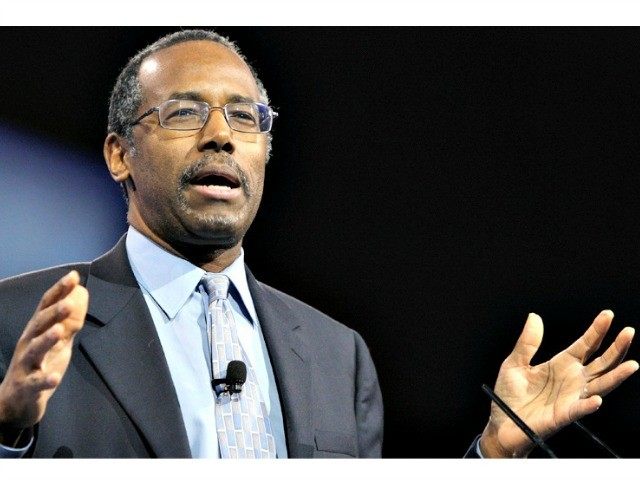DETROIT, Michigan — Dr. Ben Carson, now an official candidate for the presidency of the United States, addressed a small gathering of supporters here at the Charles H. Wright Museum of African American History on Monday morning. He discussed the need to remove the “chains” big government uses to hold Americans back.
“In more than 30 states now, people actually find it easier to collect benefits than to work a minimum wage job,” Carson said.
In many cases, they can even make more money than working. So can you really blame someone who decides to take that? What it is really doing is extinguishing the energy that characterized the rampant rise of this nation. I personally, if I were given the choice of staying at home and receiving x number of dollars or staying at home and receiving the same x number of dollars, I would personally take the minimum wage job. Why? Because I would develop skills and develop relationships that allow me to climb the economic ladder so that a few years later I’m in much better shape than the guy who’s sitting at home on the couch. These are the kinds of things that we have got to re-instill into people.
Carson’s personal story—through hard work, self-education and entrepreneurialism he rose from destitute poverty here in Detroit to become one of the world’s leading neurosurgeons, heading John Hopkins Hospital’s pediatric neurosurgery department at age 33—is one he and his team are highlighting as he rolls out his White House bid. Carson spoke at the Museum of African American History here about much of his story, as he lambasted cultural and political breakdowns in America.
“The income disparity gap is getting wider and wider,” Carson said. “Some people want to blame the rich. It’s not the fault of the rich. It’s just that the only place to make money with your moneys now, pretty much, is in the stock market. That tends to be something that’s used by rich people, and not so much black people.”
Carson said that “it used to be” that a man would make “a certain amount of money, and he’d put five percent of it in the bank.”
“He would watch it grow with a decent return—four or five or six or seven percent,” Carson said.
He’d do that for thirty or forty years. When it was time to retire, he had a nice nest egg—and income—and he could do the things that he wanted to. Those days no longer exist. He can still put money away but he’s not going to see any growth because the fed artificially suppresses the interest rates. They tell us there’s no inflation but if you go to the store you’ll see that there is.
Carson said that the “solution” to these problems is “complex.”
Because the country is more than $18 trillion in debt, Carson said that the Federal Reserve can’t just let interest rates rise. If rates go any higher, he said, the nation could be paying nearly a trillion dollars in interest on the national debt per year.
“What we’re really going to have to do to solve those kinds of problems is grow the economy,” Carson said.
And grow it in a very substantial way. As people who have been in Detroit for a long time know, this country is the owner of the most dynamic economic engine the world has ever known. All we have to do is let is loose. If you let it loose, my goodness, all the money that’s on the sideline will be ready to be reinvested. We have to have an environment that encourages entrepreneurial risk-taking. You want to feed that economic engine. We’re doing just the opposite—wrapping that economic engine with chains of regulation and it’s very difficult for it to operate under those circumstances.

COMMENTS
Please let us know if you're having issues with commenting.